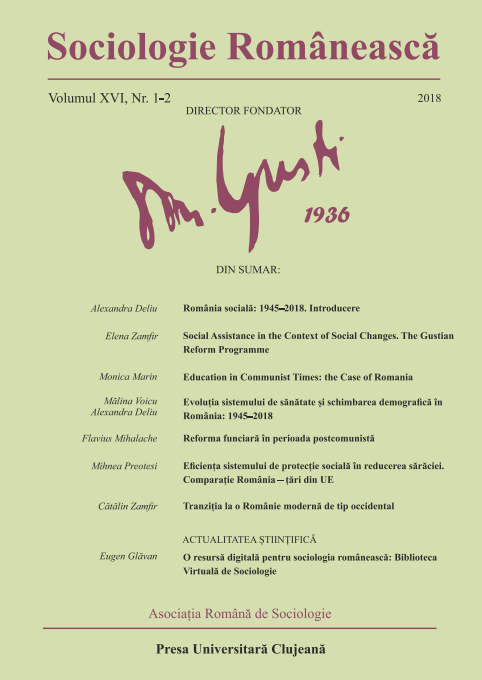Tranziția la o Românie modernă de tip occidental
The Transition to a Modern and Western-like Romania
Author(s): Cătălin ZamfirSubject(s): Welfare services
Published by: Editura Eikon
Keywords: transition; strategies of transition; state; welfare; standard of living;
Summary/Abstract: After the fall of the communist regime, Romania was left in a state of major indecisions and lack of consensus regarding its own development and, even though plans for transition were coagulated, they were not put in place. Various social groups can be distinguishable as important actors in the first years after 1989. The transition from communism to capitalism involved major changes in economy and production, as well as in the social structure of Romania. Associated with these changes, the role of the state has been restructured and diminished. Using quantitative data available from national as well as European surveys, the argument of this study is that the lack of a consistent strategy of reform, coupled with a flagrant disregard of the social costs and effects of the structural change in 1989, set Romania on a difficult course and severely affected the everyday lives of Romanians. Poor economic performances, caused by the dismantling of industry and the lack of efficiency of agriculture, result in low wages, social inequalities and poverty. Further, these imbalances seem to have been disregarded in public policies and government strategies so far, as the role of the state as provider of welfare and improvements in quality of life shrank considerably in the transition period.
Journal: Sociologie Românească
- Issue Year: 16/2018
- Issue No: 01+02
- Page Range: 101-154
- Page Count: 54
- Language: Romanian

